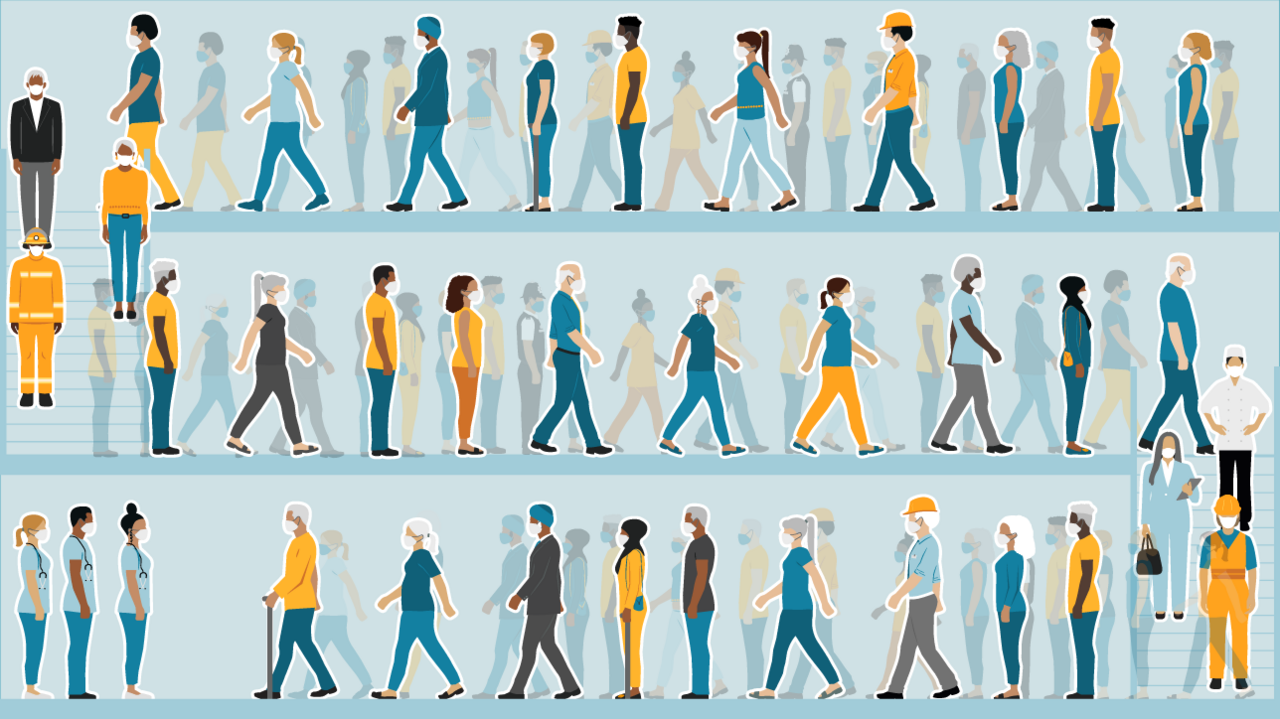Covid-19: 'Perfect storm' could lead to rise in London infections
- Published
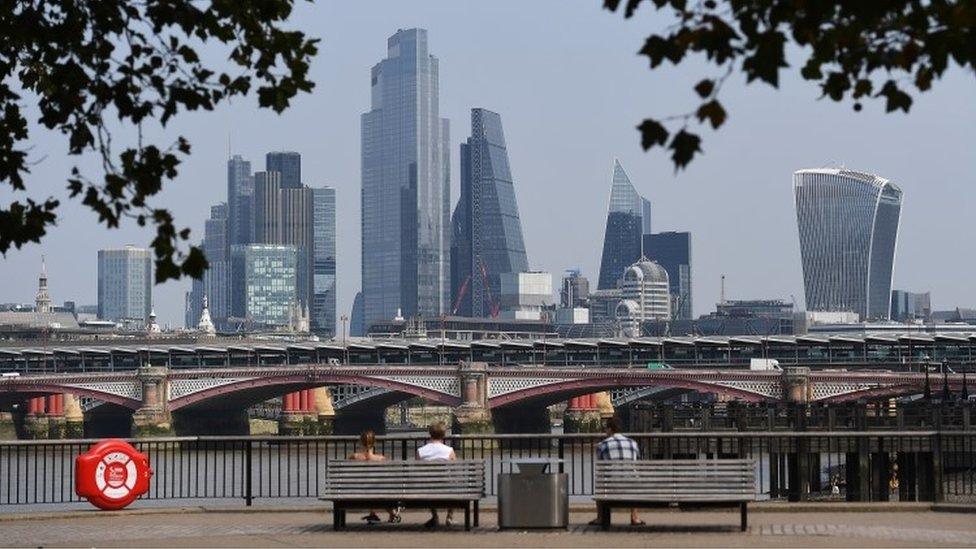
London has, on average, a younger population than the rest of the country
London has a "perfect storm" of factors which could lead to an increase in Covid-19 cases, public health experts have warned.
The city's role as an international hub and its young, "ethnically mixed and transient" population, could lead to rising infections, the London Assembly Health Committee , externalheard.
Covid-19 infections are rising, particularly in younger age groups.
A high rate of multiple occupant homes could also contribute to the rise.
Dr Sandra Husbands, the director of Public Health for City of London and Hackney, told the meeting on Tuesday, that London had a "perfect storm of a young population that's ethnically mixed, mobile, a lot of it is transient and less settled and also some significant areas of deprivation in the capital."
She added that 17,000 people from Hackney who had had the opportunity to have two doses of the vaccine by April had not.
Almost 145,000 people have had the first dose of the vaccine in Hackney, external, with 77,000 having the second. About 280,000 people live in the borough, external.

London's population:
London has a much younger population, with a median age of almost 35.6, five years younger than the UK (40.3)
Only 12.1% of its population is aged 65 years or older
Its high level of migration means there is a high proportion of the population aged 16 to 44 years compared with the rest of the UK
It has the greatest proportion of working-age people (68%)
London boroughs account for the 20 most densely populated areas in the UK, with the highest being Tower Hamlets and Islington with more than 16,000 people per sq km

Relaxed precautions
The meeting also looked at ways to investigate what strategies were needed for the city to adapt to and manage Covid-19 outbreaks and new variants.
It heard the city could build resilience through vaccinations, prevention and control measures and working with communities on methods such as surge testing.
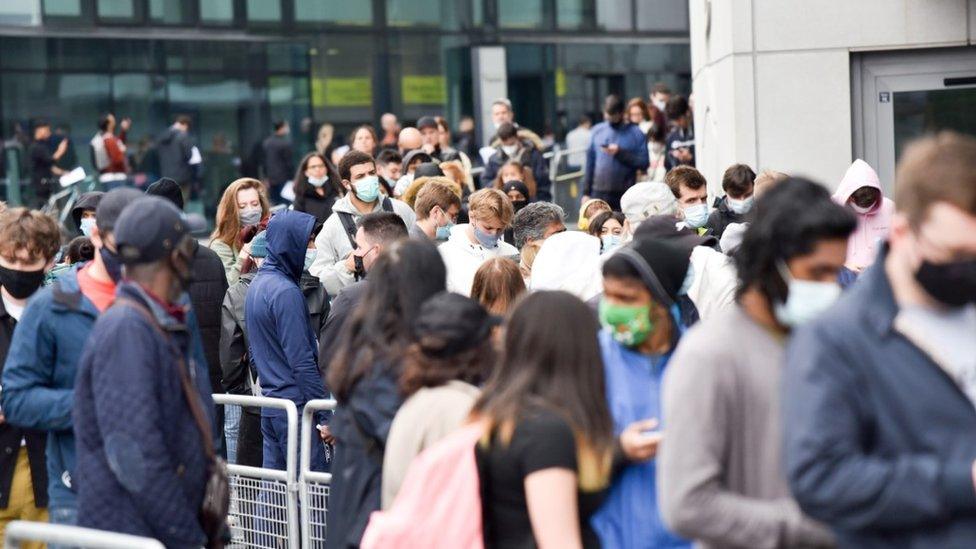
Some of London's football stadiums became pop-up vaccine centres at the weekend
But Dr Husbands said she had noticed a shift in behaviour since the government announced the roadmap for lifting restrictions.
"More and more people were feeling more relaxed about taking any of the precautions, even the ones they are still required to do under the regulations such as wearing face masks," she said.
"When I talk to my DPH (Department for Public Health) colleagues, we all have similar issues, we're struggling to get people to remember that actually this is still a virus that kills people and that even if you're young you can suffer similar consequences of it and we have to stop it spreading in order for us all to get back to some sense of normality."
'Couldn't afford to isolate'
Dr Zubaida Haque and Professor Anthony Costello from Independent Sage - a group of scientists that advises on coronavirus but is not affiliated with the government - said more support was needed for those who had to self-isolate.
Dr Haque added: "We know from examples, such as Newham, that supported isolation does work.
"They [Newham] realised they had low levels of isolation because people couldn't afford to self-isolate but also because they didn't have the space to isolate - we know about 1 in 10 houses in London are overcrowded."
She said the borough had set up a system whereby people could self-isolate in other accommodation.

A SIMPLE GUIDE: What are the symptoms?
IN-DEPTH: Coronavirus pandemic
VACCINE: How will the UK deliver the jabs?
IMMUNISATION: Which Covid vaccine is best?

Have you had the second dose of your vaccine? If not tell us why. Email haveyoursay@bbc.co.uk, external.
Please include a contact number if you are willing to speak to a BBC journalist. You can also get in touch in the following ways:
WhatsApp: +44 7756 165803
Tweet: @BBC_HaveYourSay, external
Please read our terms & conditions and privacy policy
If you are reading this page and can't see the form you will need to visit the mobile version of the BBC website to submit your question or comment or you can email us at HaveYourSay@bbc.co.uk, external. Please include your name, age and location with any submission.
- Published20 June 2021
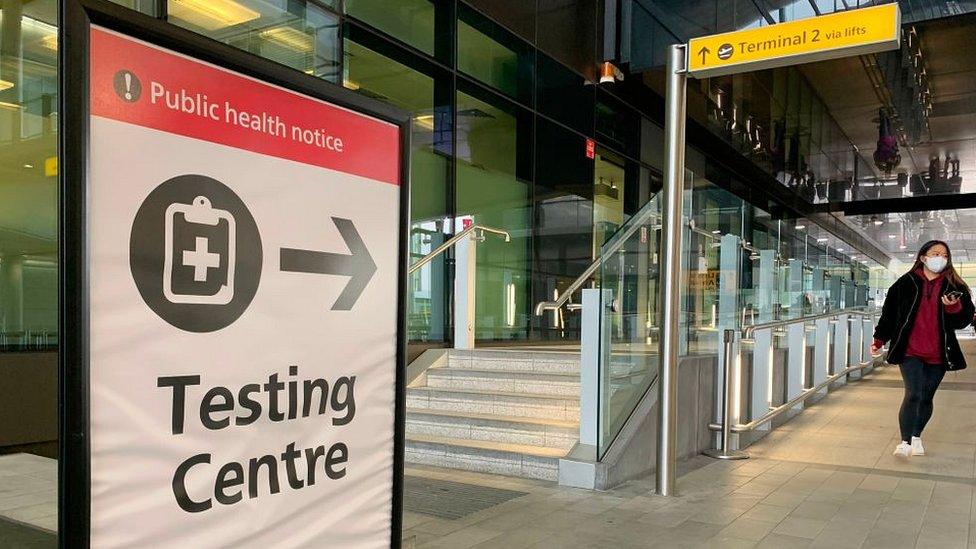
- Published17 November 2021
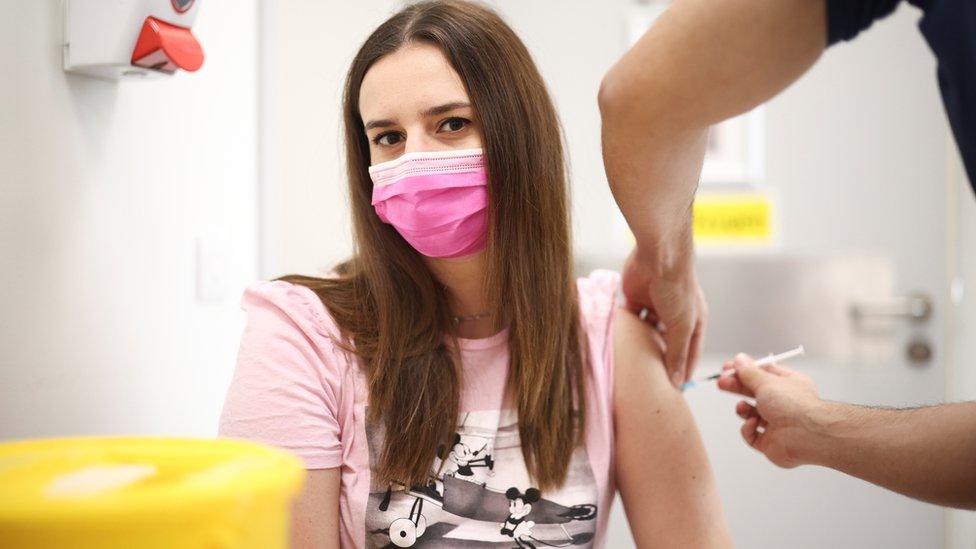
- Published4 March 2022
